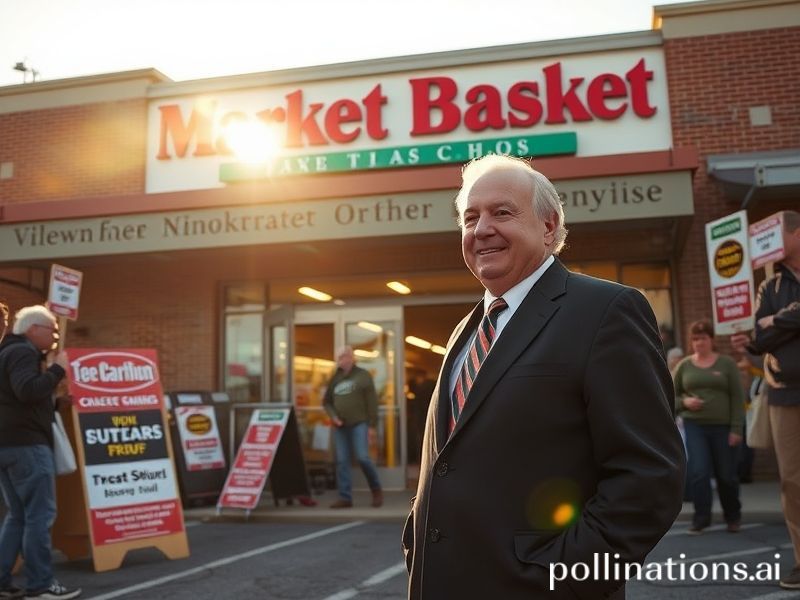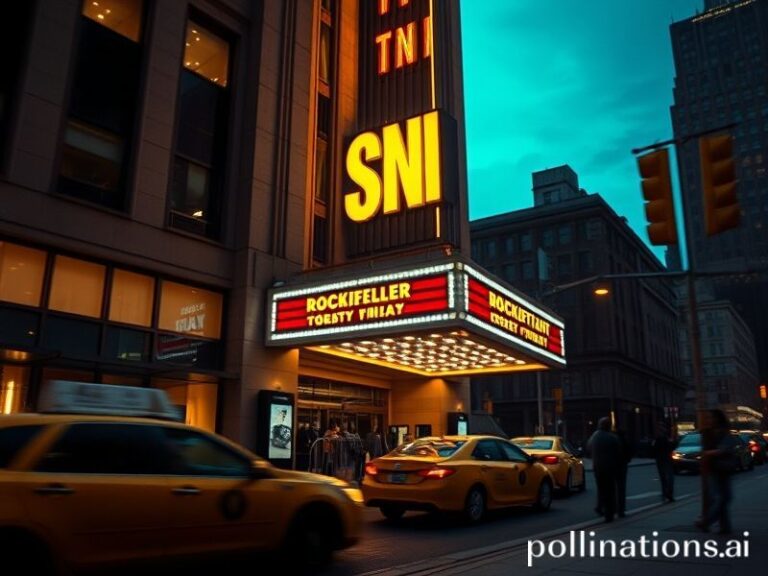Arthur T. Demoulas vs. Wall Street: The Tiny Grocery Chain That Accidentally Terrified Global Capitalism
Arthur T. Demoulas and the Market Basket Uprising: How a New England Grocery Chain Accidentally Became a Global Case Study in Shareholder Rebellion
By the time Arthur T. Demoulas was reinstated as CEO of Market Basket last August, the parking lots of 71 supermarkets from Lowell to Portsmouth looked less like suburban America and more like a hastily assembled refugee camp—complete with charcoal grills, lawn chairs, and signs that read “Artie T or Bust.” From the outside, it looked like a quaint New England family squabble over who gets the cranberry sauce. From the inside, it was the closest thing the Western Hemisphere has seen to a successful workers’ revolution since the Bolivian water wars—only with better signage and free samples.
To the rest of the planet, Market Basket is a curiosity: a regional grocer that never bothered to leave Massachusetts, New Hampshire, and Maine. Yet the six-week strike that paralyzed the chain in 2014 has quietly ricocheted through boardrooms from São Paulo to Seoul. Consultants now cite it in PowerPoints titled “Stakeholder Activism 2.0,” right after the slide about how to survive a Twitter mob. Venture capitalists, who normally treat labor relations the way vampires treat garlic, have begun asking awkward questions like “What if the employees actually like the boss?”—a query that, translated into McKinsey-speak, means “How do we hedge against spontaneous solidarity?”
The numbers are almost laughably modest: $4.6 billion in annual revenue—roughly what Walmart misplaces in the sofa cushions. But the implications are planetary. In an era when Amazon can erase a neighborhood bookstore with a pricing algorithm, Market Basket proved that a low-margin, brick-and-mortar relic could stare down Wall Street, win, and still sell bananas for 39¢ a pound. The lesson, delivered with a Boston accent thick enough to spread on toast, is that brand loyalty rooted in actual human decency is a moat deeper than any drone-delivery patent.
Overseas, the episode is studied like a rare marsupial that shouldn’t exist. French labor unions—who riot the way other people picnic—sent delegations to Lowell to learn how workers and customers formed an unholy alliance without a single Citroën being torched. In Japan, the saga was adapted into a manga subplot where the hero’s secret weapon is “respect-based capitalism” (it sold poorly; readers preferred the giant-robot arc). Meanwhile, British grocery giant Tesco quietly hired the Market Basket protest’s social-media strategist, presumably to figure out how to get shoppers to chain themselves to a Tesco Metro voluntarily.
The Demoulas family feud itself reads like the script treatment Netflix rejected for being too on-the-nose: two branches of a Greek-American dynasty locked in litigation since the 1990s over whether cousin Arthur S. could squeeze the company like an overripe melon. When Arthur S.’s board fired Arthur T. in June 2014—citing, hilariously, “over-generous profit-sharing”—employees walked out, suppliers halted deliveries, and customers boycotted in solidarity. Revenue plummeted to near zero. The standoff ended only when Arthur T. mortgaged his soul, his house, and probably a few uncles to buy the entire company for $1.5 billion. Somewhere, a Greek chorus of ancestors groaned: “We came here to avoid exactly this.”
Globally, the episode has become a Rorschach test. To Davos Man, it’s a cautionary tale about letting emotions invade the sacred spreadsheet. To labor activists in Bangladesh, it’s proof that even rich-world cashiers can topple a dynasty when they stop punching the clock and start punching upward. And to the rest of us, it’s a reminder that capitalism occasionally trips over its own shoelaces and lands—briefly, miraculously—on the side of the mortals.
Market Basket now plods along, still refusing to go public, still undercutting Whole Foods by the price of a small mortgage. Arthur T. reportedly still knows every employee’s birthday and the names of their dogs, a management style that makes Silicon Valley “chief people officers” soil their Allbirds. The world’s consultants will keep flying into Logan, renting Corollas, and scribbling notes about “authentic leadership,” blissfully unaware that the real secret ingredient was something no MBA program teaches: the stubborn, inconvenient idea that treating people like people might be—against all odds—good business.







